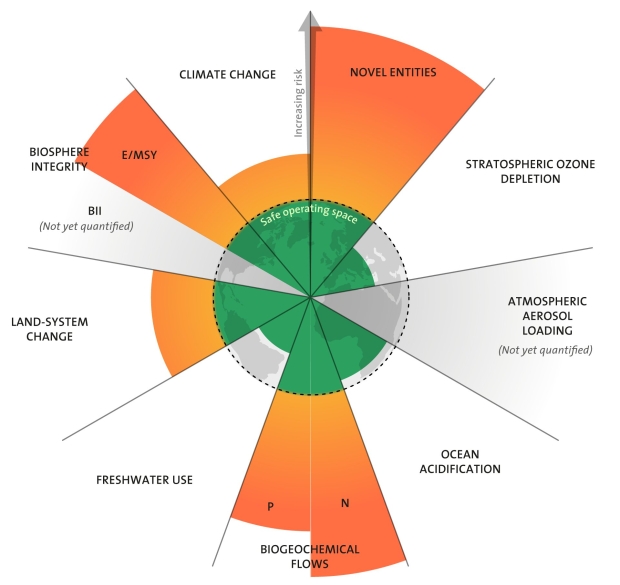A new study published in the journal Environmental Science and Technology discusses the updated planetary boundaries framework.
In 2009, nine planetary boundaries were identified by researchers, which describe the relatively stable state of Earth since the dawn of civilization approximately 10,000 years ago. Some of the boundaries have yet to be quantified, but in 2015 scientists concluded that at least four of the boundaries have been breached. The boundary for novel entities is now being breached with significantly increased chemical and plastic production.
"There has been a 50-fold increase in the production of chemicals since 1950. This is projected to triple again by 2050. The pace that societies are producing and releasing new chemicals and other novel entities into the environment is not consistent with staying within a safe operating space for humanity," says co-author Patricia Villarubia-Gomez from the Stockholm Resilience Centre, Stockholm University.
Novel entities include an estimated 350,000 different types of chemicals being manufactured globally, including plastics, which contain over 10,000 different chemicals. The team reports that plastic production has increased by 79% between 2000 and 2015, with the total plastic mass worldwide more than doubling the mass of all living mammals. Roughly eighty percent of all plastics ever produced stay in the environment.
"Plastic production, use and waste affects other planetary boundaries as well. This includes climate, via fossil fuel use, land and fresh water systems via use, pollution, physical changes, and spread of invasive species, antibiotic resistance genes and pathogenic microbes in the oceans. Plastics have helped solve some environmental issues owing to their light weight and durability, but overuse and misuse is having devastating impacts on planetary health," said co-author Bethanie Carney Almroth from the University of Gothenburg.
"Shifting to a circular economy is really important. That means changing materials and products so they can be reused not wasted, designing chemicals and products for recycling, and much better screening of chemicals for their safety and sustainability along their whole impact pathway in the Earth system," said Villarubia Gomez.
You can read more from the study here.



